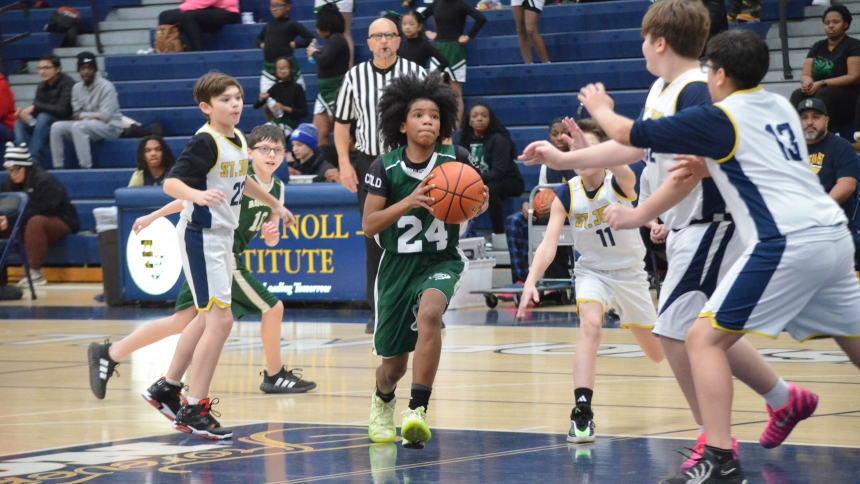
As published in the Northwest Indiana Catholic on May 5, 2019
Sadly, horrifying scenes of bloody violence have become common-place in the news cycle. Mass shootings and terrorist bombings occur throughout the world on a regular basis. Much of this evil seems to be targeted to particular religious groups. Synagogues, mosques and churches have suffered the deadly effects of religious hatred.
The bombings of Catholic Churches in Sri Lanka on Easter Sunday left hundreds wounded and dead. This consistent trend of religious intolerance should concern all of us.
In recent weeks, 20 Catholic churches in France suffered terrible acts of arson, vandalism and desecration of the Eucharist. Christians in the Holy Land and throughout the Middle East are being systematically driven out of their homelands through persecution, prejudice, violence and repression.
In 2018, the French Ministry of the Interior reported 541 anti-Semitic acts, 100 anti-Muslim acts and 1063 anti-Christian acts throughout the country. A statue of the Blessed Virgin Mary was found beheaded and desecrated on the grounds of a Catholic parish in Los Angeles not long ago. Last December, vandals attacked our own Shrine of Christ’s Passion in St. John.
A fundamental human right is the freedom of religion. Every person is entitled to belong to a religion, worship God and act out their religious principles without fear of reprisal, prejudice or persecution. Some people erroneously view religion as the cause of division and violence in the world, advocating for the eradication of all religion, at least from the public square.
The Catholic Church would posit the opposite point of view, namely that religion, properly understood and authentically lived, is the greatest guarantor of freedom, peace, human rights and the flourishing of communities. The fact that fanatics manipulate religious belief to foment violence and hatred against those who hold other beliefs does not diminish the enormous good that flows from the proper practice of faith.
Ecumenical dialogue, proper knowledge of other faiths, a shared commitment to the common good and respect for the dignity of every human person become building blocks to overcome religious ignorance, intolerance and hatred which breed all the insane violence which wracks the world today.
People often speak of tolerance as the needed value to quell these deadly divisions. I certainly agree, but tolerance is not enough. Tolerance or coexistence speak of a “live and let live” attitude, a passive acceptance of others whose beliefs and convictions differ from our own. Can a mere “putting up” with each other really build a world of peace, justice, love and mercy? I think not.
I do not want to tolerate people; I want to love them. I do not want to coexist with others; I want to be in relationship with them. I do not want to live in a world of divided camps; I want to live in a society which is built on truth, goodness, beauty and compassion.
In her social teaching, the Catholic Church speaks of solidarity, a radical concern for everyone, especially the most vulnerable, poor and marginalized. The Church embraces subsidiarity, the conviction that the most local level is the best sphere for living out relationships of service and care. Catholicism will always defend the inherent dignity and value of the human person, made in the image and likeness of God and redeemed by Christ.
The choice to not love, respect and serve others is literally tearing the world apart right now. As Christians, we must embrace the radically opposite path of love, forgiveness and compassion. This difficult moment demands an examination of conscience. Are there people I exclude from my heart and concern because they are different from me? Am I prejudiced against folks of a different race, economic status, religion or political conviction? Even within the Church, can I love and embrace those who differ in their spirituality, style of worship, support of the parish or even personality quirks?
Sadly, I have personally witnessed recently the ugly reality of “good, Mass-attending” Catholics demonizing others who differ from them. How disturbing that Christians can hear the Scriptures proclaimed and receive the sacraments their whole lives and yet miss the entire point of the Gospel, destroying others through gossip, ignorance and outright hatred.
If the human community is not going to end in total suicidal violence, we have to figure out how we can live together, deeply committed to the common good without literally killing each other. A healing process of conversion, forgiveness, love and respect needs to transform every heart, including our own.
We need to unify in order to bridge the ever-widening chasms opening up in society on the political, religious, economic and cultural level. The social teachings of the Catholic Church have never been more apropos or sorely needed than in this current moment of crisis and decision.
We can either be part of the solution or part of the problem. We can build bridges of understanding or erect barriers of hatred. We can either love the other as a brother or sister or demonize the other as an enemy.
We can either love or hate.
As Moses said to the Israelites in the desert, “Today I put before you death and life, the blessing and the curse. Choose life then that you and your descendants may live.” (Deuteronomy 30: 19-20.)
+ Donald J. Hying


